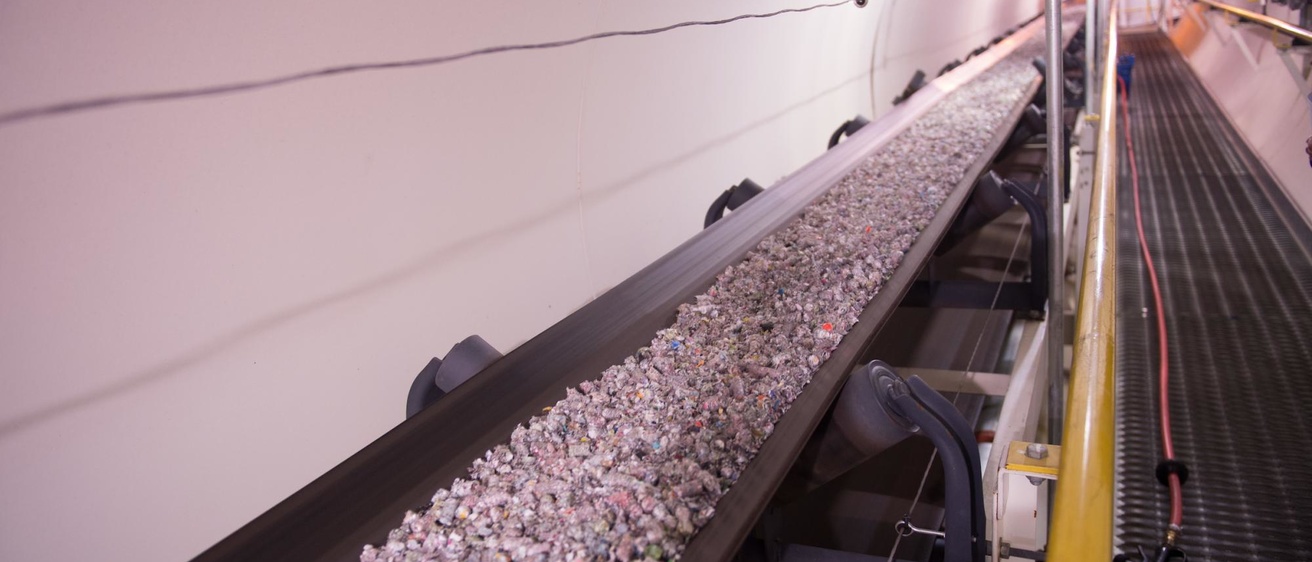A new University of Iowa task force is working to set goals and ensure the continued progress of campus sustainability efforts.
The 2030 UI Sustainability Goal Setting Task Force, which includes Iowa faculty, staff, and students, formed near the end of the fall 2019 semester as the result of a resolution passed by both student government bodies.
During its annual joint session in September, UI Student Government (UISG) and Graduate and Professional Student Government (GPSG) passed a resolution in support of a Climate Call to Action plan, which was subsequently endorsed by the UI Sustainability Charter Committee and signed by President Bruce Harreld.
The 2030 task force set the week of Earth Day activities in April as a target date for reporting on progress toward achieving the university’s 2020 goals, as well as a preliminary announcement of 2030 goals.
“As a public research university, we have an important role to play in contributing solutions to what have been called the grand sustainability challenges of the 21st century,” says Stratis Giannakouros, director of the Office of Sustainability and the Environment and co-chair of the new task force. “I’m proud to see our students leading the way in these efforts to address the climate crisis, and sustainability more generally. We will do everything we can to provide them with opportunities to continue to lead the University of Iowa and the world into the future.”
Emily Manders, a fourth-year environmental policy and planning major from Cedar Rapids, Iowa, who serves as UISG director of sustainability, helped write the resolution in tandem with Joseph Haggerty, UISG sustainability chair, and Christian Bako and Amina Grant, GPSG sustainability co-chairs.
“One concern I had was that this document could become just a piece of paper without any concrete action behind it, but I am pleased to see that since the passing of the resolution our work has also inspired Faculty Senate to pass its own climate-emergency resolution,” Manders says. “In working on this resolution, our goal was not only to have people realize the urgency of climate change, but also to encourage the university to be more outspoken about the many amazing sustainability-related things it is doing. I’m very excited to see the outcomes of these different task forces, and for the next 10 years of sustainability work.”
The UI Sustainability Charter Committee endorsed the resolution and presented it to Harreld after consideration and endorsement by shared governance on campus, says Erin Irish, associate professor of biology and UI Sustainability Charter Committee co-chair.
“I have been delighted to see overwhelming support from the various shared governance bodies as we have presented it for their endorsement,” says Irish. “I was thrilled that the president’s response was prompt and unequivocal, and I have been most impressed by the widespread buy-in across campus toward genuine sustainability.”
Giannakouros says the 2030 task force is working to set specific goals to announce around Earth Day, but developing metrics for measuring the success of some of the goals will require more time. In the meantime, some goals are on track or even ahead of schedule.
In April 2019, the Environment America Research and Policy Center listed the UI among America’s Top Colleges for Renewable Energy, ranking the campus as third in the nation for “Renewable Heating, Cooling, Hot Water and Other Non-Electric Energy Produced per Student.” Giannakouros noted that existing campus climate goals are informed by the Intergovernmental Panel on Climate Change (IPCC), the United Nations body for assessing the science related to climate change.
“I expect the university will set some big but achievable goals that are in alignment with the IPCC’s scientific recommendations,” says Giannakouros. “Our campus already is a national leader in energy management, and with our innovative biomass project we are on target to make our campus coal-free by 2025 at the latest. The University of Iowa has been successful in achieving meaningful reductions in carbon emissions, and we intend continue to build upon that success.”
Bako says sustainability-related issues are “at the forefront of the hearts and minds of the UI student body.”
“We recognize that fighting climate change and transitioning to the renewable-energy age of the future will be the challenge of our generation,” he says. “The fact that task forces were developed is a large step in the right direction. The ongoing conversations related to sustainability and climate change going on within shared governance, across campus, and in the Iowa City community are extremely encouraging.”
